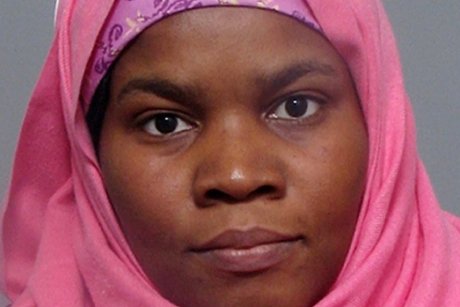|
By Dinu Kumarasinghe Issue 7 MLS has a lot going for it. You may not have been aware, but we are Australia’s Number 1 Law School! We have a piano! We have a poodle! We’ve got a nice lawn to laze and lunch on between 1pm and 2.15pm. We even have a revolving door to hate! We also have some pretty stellar academics floating around who sometimes give lectures (+ wine + cheese) A few weeks ago, I attended the Science and Technology Law Association’s first event, a lecture by Dr Ian Freckleton QC on the recent UK case of medical negligence against Dr Bawa-Garba. Many medical students also attended. Dr Bawa-Garba was found criminally guilty for a patient’s death in circumstances that were chillingly familiar to all medics, so one of those med students asked, “How can we have faith in the law?”
I really felt that medic’s question. How are they to trust the law to protect them, where a jury found a doctor guilty of gross negligent manslaughter when the Tribunal, her peers and colleagues, agree that her actions can’t be held against her? The further I progress in this degree, the more disillusioned I become. I see how powerful the law is, and I see more of its shortcomings. Perhaps this makes me a bad law student, but the same instinct to fight the law informs my instinct to fight for it. The most potent part of his question was its emotion. Hearing about that lack of faith first-hand was far more effective than reading it in a law reform report or judgment. I think it’s okay to feel a bit hopeless with, and maybe even a bit indignant towards the law. It might take us out of the law. It might bring us to a comment, a strained voice of frustration, that adds depth to our understanding of the law. The pain and fear that often founds our practice is just as integral as the intricate reasoning behind it. The law affects almost everything. But that means that “everything” also affects the law. It’s important that the legal sector keeps sight of the fact that we don’t know the facts, pressures and complexities of every area of society in which we work. We may make laws, judgments and contracts about engineering, but that doesn’t mean we should be trusted to build the bridge. Why then should we assume we understand other issues? A court judgment on a breached intervention order doesn’t remedy the trauma experienced by plaintiffs. And you certainly couldn’t understand that trauma by attending court or reading a judgment. Doesn’t it seem odd then, perverse in fact, that our practice engages with social issues which affect so many people, but we rarely embed our practice with the need to engage those people themselves? Ok, perhaps my call to interact with people outside the law school is a bit woo-woo for you. Let’s bring it down to a practical and hopefully more applicable level. First, accept that legal practitioners don’t know everything. Second, acknowledge that lawyers are (unduly) sure of ourselves in our practice. Yes, experts are called in cases to explain complexity, but we all know that a line of questioning is just as influential, if not more so, than the answer. If we engage those experts in conversations such as the one we saw at SATLA’s lecture, we might ask better questions. Perhaps more importantly, we might have more respect for the doctors, electricians, cleaners we interview. I’m from a medical family, so Dr Bawa-Garba’s case really hit home for me. How can a lawyer understand the uproar against that judgment if you hadn’t seen a junior doctor’s deepening eye bags after a double shift, or waning spirit after a demeaning interaction with their consultant? An interdisciplinary understanding of law is vital if we are to maintain the intellectual integrity of our practice, but perhaps reading textbooks and calling experts is not enough for that. You need to speak to people, live with people, and feel with people outside the law. So while I love you all,* I won’t meet you on the lawn at 1pm. I’m gonna speak to someone who doesn’t know who in the hell Lord Denning/Justice Kirby/[insert name of Famous Firm] is. I’m going out for lunch. *that’s a blatant lie, I don’t even know most of you. Comments are closed.
|
Archives
October 2022
|



